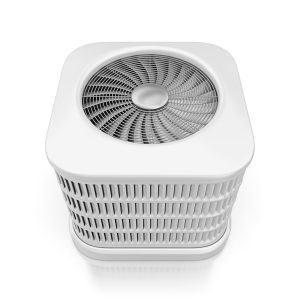Air conditioners are complex machines that rely on various components to keep your home cool and comfortable. One of the most critical systems inside your AC unit is the electrical system, which powers the compressor, fans, and other essential components. Unfortunately, electrical malfunctions are not uncommon and can lead to poor cooling performance, unexpected shutdowns, or even complete system failure.
In this post, we’ll explore common electrical issues in air conditioners, how to identify them, and why it’s important to call a professional technician for air conditioner repair in Colorado Springs, CO.
1. Capacitor Failure
The capacitor is a small but vital part of your AC’s electrical system. It stores energy and helps to start and run the compressor and fan motors. There are two types of capacitors in most AC systems: start capacitors and run capacitors.
- Start capacitors provide the initial burst of energy required to start the compressor and fans.
- Run capacitors maintain a constant flow of energy to keep the AC running.
When a capacitor fails, your air conditioner may struggle to start, or you might hear a humming noise followed by a sudden shutdown. In some cases, the AC unit may not turn on at all. Since capacitors hold a charge, trying to replace them yourself can be dangerous. It’s best to call a licensed technician who has the proper training and tools to safely handle this component.
2. Wiring Issues
Wiring problems are one of the most common electrical issues in air conditioners. Over time, wires can become frayed, corroded, or disconnected, leading to malfunctions. Poor installation, rodent damage, or wear and tear can all contribute to wiring problems.
Faulty wiring is a fire hazard, and it’s essential to have it inspected and repaired by a professional. Attempting to fix electrical wiring on your own can lead to severe injury or further damage to your air conditioning system.
3. Failed Contactor
The contactor is a switch that controls the flow of electricity to the AC’s compressor and fan motor. When the thermostat signals the AC to start, the contactor closes, allowing electricity to flow. Over time, the contactor can wear out or become pitted due to electrical arcing, preventing the AC from turning on.
4. Compressor Electrical Problems
The compressor is the heart of your AC system, and it relies on a stable electrical connection to operate. Electrical issues in the compressor can cause several problems, including:
- Hard starting: The compressor may struggle to start or take longer than usual.
- Frequent overheating: Electrical imbalances can cause the compressor to overheat, triggering a safety shutdown.
- No cooling: If the compressor’s electrical circuit is completely interrupted, the AC will not be able to cool the air.
5. Blown Fuses and Tripped Breakers
Fuses and breakers are safety devices designed to protect your AC from electrical overloads. If your air conditioner repeatedly trips the breaker or blows a fuse, this is a sign of an underlying electrical problem, such as short circuits, loose connections, or overloaded circuits.
Why You Need a Professional Technician
Air conditioners are complex systems that require a professional touch, especially when it comes to electrical malfunctions. Trying to fix electrical problems on your own can result in injury, further damage to the unit, or even electrical fires. A licensed HVAC technician has the expertise and tools needed to safely diagnose and repair any electrical issues in your air conditioner.
It’s time for service that’s So Cool. So Cozy. Contact SoCo Heating and Cooling!

